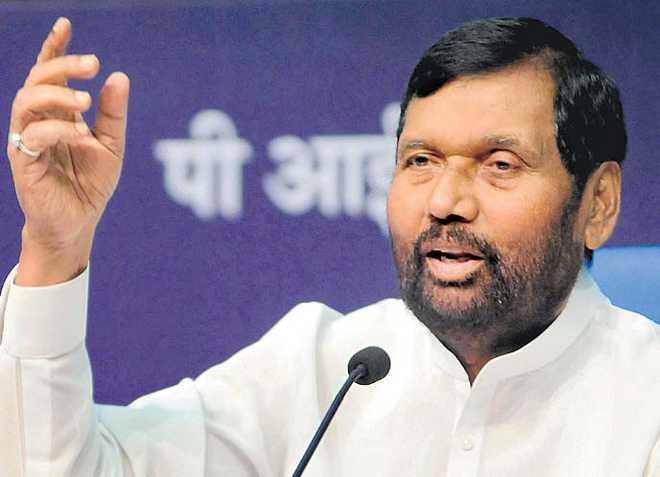
Ram Vilas Paswan, Consumer affairs minister
Vibha Sharma
Tribune News Service
New Delhi, May 15
The buffer stock of pulses created by the government to control spiralling prices has now become a “problem”, according to Food and Consumer Affairs Minister Ram Vilas Paswan.
Speaking on achievements of his ministry over the past three years, the minister today said they were grappling with the problem of distributing around 20 lakh tonnes of pulses’ buffer stock created through imports and domestic procurement.
(Follow The Tribune on Facebook; and Twitter @thetribunechd)
Around 16.27 lakh tonnes of the buffer stock came from domestic procurement. The ministry is in talks with states and agencies to sell buffer stock. It is also planning to sell some quantities to defence and paramilitary forces.
After prices of pulses shot through the roof last year, the government decided to make purchases to build a buffer stock, using the Price Stabilisation Fund (PSF). The output for 2016-17 crop year is all set to cross a record 22.4 million tonne as against 16.35 MT last year.
PM Modi had also signed a long-term agreement with Mozambique for the import of pulses. Regarding the status of the agreement with the African nation, Paswan said the bigger issue at the moment was to deal with the existing stock and to help local producers.
While bumper production will reduce country’s dependence on imports, experts say the government needs to devise ways to control price volatility, which will benefit both farmers and consumers. Ban on exports and curbs on stockpiling by private agencies in a year that saw bumper yield contributed to drop in prices of pulses. The absence of a “real commodity market” in the country is another reason. Terming as stable and under-control the retail prices of 22 essential commodities tracked by the government, Paswan said: “With GST and implementation of e-national agri-market, both farmers and consumers will benefit.”



























